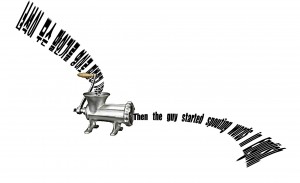 An article to give hope to the translators among us. Over at Salon they are running an article called, The birth of the Google Translate era, which talks about the massive improvements that Google Translate has made, but argues that humans will not be easily dislodged from the translation niche, particularly the literary one.
An article to give hope to the translators among us. Over at Salon they are running an article called, The birth of the Google Translate era, which talks about the massive improvements that Google Translate has made, but argues that humans will not be easily dislodged from the translation niche, particularly the literary one.
David Bellos, a professor of French and comparative literature at Princeton and Booker Prize-winning translator (so he may have a kind of prejudice in this argument^^), notes that Google Translate has a nice approach:
In terms of user experience I think it’s a quantum leap in machine translation. In terms of its intellectual presuppositions it’s not a quantum leap, it’s just a very clever engineering solution. It uses a statistical method to find the most probably match for an expression — it doesn’t try to understand it or strip it down into vocabulary, syntax and meaning. It just looks for matches using a probabilistic computational device.
In terms of user experience I think it’s a quantum leap in machine translation. In terms of its intellectual presuppositions it’s not a quantum leap, it’s just a very clever engineering solution. It uses a statistical method to find the most probably match for an expression — it doesn’t try to understand it or strip it down into vocabulary, syntax and meaning. It just looks for matches using a probabilistic computational device.
But inherent in that approach is why it won’t necessarily work in literature. Bellos notes that in order for this approach to work, you have to continue to have translations by humans.. otherwise the algorithm will continue to work only for older works; as language changes, the algorithmn is not able to recognize it, as it’s statistics are based on older translations, using older language from both the SC and the TC.
Second, and a point Bellos does not make, is that such statistical approaches are flattening. That is to say that they work for the vast majority of language by treating all language as part of that vast majority. This is simply unsafe for literature, as good literature includes all kinds of stylistic features, and wildly idiosyncratic ones, that would be erased, or not recognized, by machine translation. Take alliteration or works written without the letter “e” (oh yes, they exist) as examples of literature that would be horribly changed by machine translation.
Bellos also talks a bit about the vehicularity of language as well as what he sees as the slightly changing, for the better, role and status of the translator. It’s well worth checking out.

